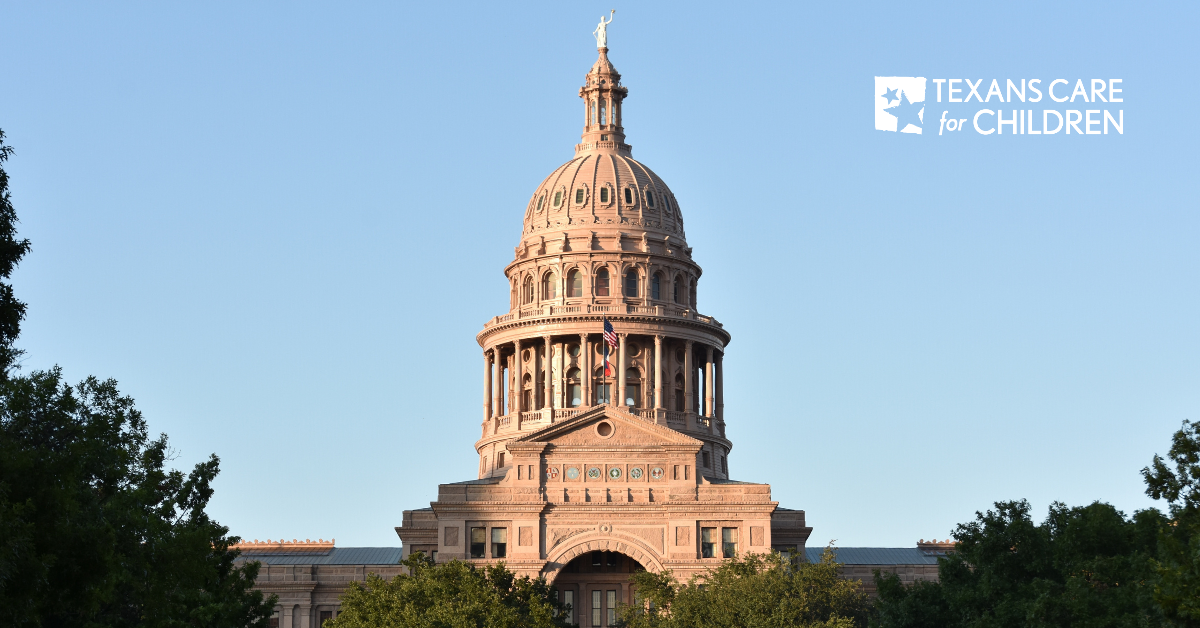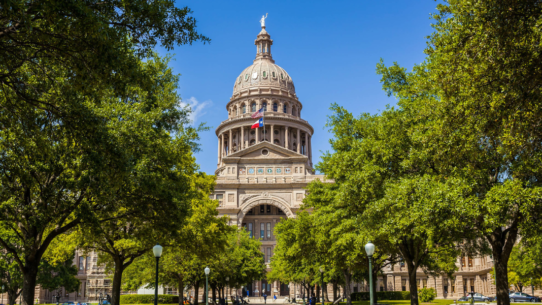For Immediate Release
Contact: Peter Clark, 512-473-2274
Austin – In response to state leaders’ request to identify potential five percent cuts in their current budget, the Texas Health and Human Services Commission (HHSC) has submitted a letter with a first draft of possible cuts for state leaders to consider.

The proposal, which HHSC emphasized is “not final,” includes cuts to programs that play a critical role in helping Texans during the current pandemic and recession, including programs to address women’s health, family violence, and indigent health care; oversight of child care and other facilities; and the state’s system for enrolling children and families in services such as SNAP food stamps, CHIP, and Medicaid.
“This is a terrible time to make it harder for Texas kids and families to get the services they need to stay healthy,” said Stephanie Rubin, CEO of Texans Care for Children. “Texas leaders have choices. Instead of cutting women’s health, child care oversight, or food stamp enrollment services in the middle of a pandemic and unemployment crisis, state leaders should use the state’s Rainy Day Fund and ask Congress for additional health funding. Brain science is clear that the first few years of early childhood are the foundation for the rest of kids’ lives, so any cuts that hurt the health of infants, toddlers, and moms should be a non-starter.”
Ms. Rubin added, “When state leaders issued their initial directions to state agencies to identify potential cuts, they wisely exempted a number of programs for kids and families. They recognized that the middle of a health and economic crisis is a really bad time to cut these services. As they review this new proposal, we hope state leaders once again recognize the importance of supporting families during these hard times and reject these proposed cuts.”
The letter proposes cuts to “client services and program administration” in women’s health, family violence services, indigent health care reimbursement, Early Childhood Intervention (ECI) respite, child advocacy programs, and more. HHSC notes that, “These reductions may potentially delay support for clients and providers, decrease contract oversight effectiveness, limit capacity to assess quality or program effectiveness, and reduce scope or extend implementation of legislatively directed changes, projects, and reports.”
Cuts to several of these services, such as women’s health programs, would not only hurt Texans in the middle of a recession and pandemic, but would also increase state costs in the medium term and long term. HHSC recently estimated that services provided by the Healthy Texas Women and the Family Planning Program in 2019, for example, will save the state a combined $140 million in General Revenue.
The agency’s letter also proposes cuts to “eligibility determination and enrollment,” which would make it harder and slower for Texans to sign up for SNAP food stamps, CHIP, Medicaid, and other services that they need during the recession and public health crisis.
HHSC suggests that families would face delays as they attempt to sign up for services, noting that the proposed cuts could result in “increasing the agency’s risk of not meeting federally required eligibility determination target timeframes.”
Additionally, HHSC proposes cuts to oversight of child care and other regulated facilities. The letter warns that, “Reductions to salary costs and critical travel will negatively impact the health and safety of individuals served” and could result in “Delaying timely investigations of allegations of abuse, neglect, or exploitation.”
The proposed reduction in oversight and investigations comes in the midst of COVID outbreaks in child care and after the Legislature passed numerous bills in 2019 to improve child care oversight and end child fatalities in child care.
It will also be important to ensure that any cuts to oversight efforts exclude foster care, where multiple children died this year and where others have been abused. A report by federal court monitors recently made clear that state oversight of foster care homes and facilities is dangerously inadequate. HHSC’s budget letter notes that proposed cuts to oversight aim to minimize “impacts to the health and safety of individuals receiving services in regulated facilities including children in residential care settings.”




